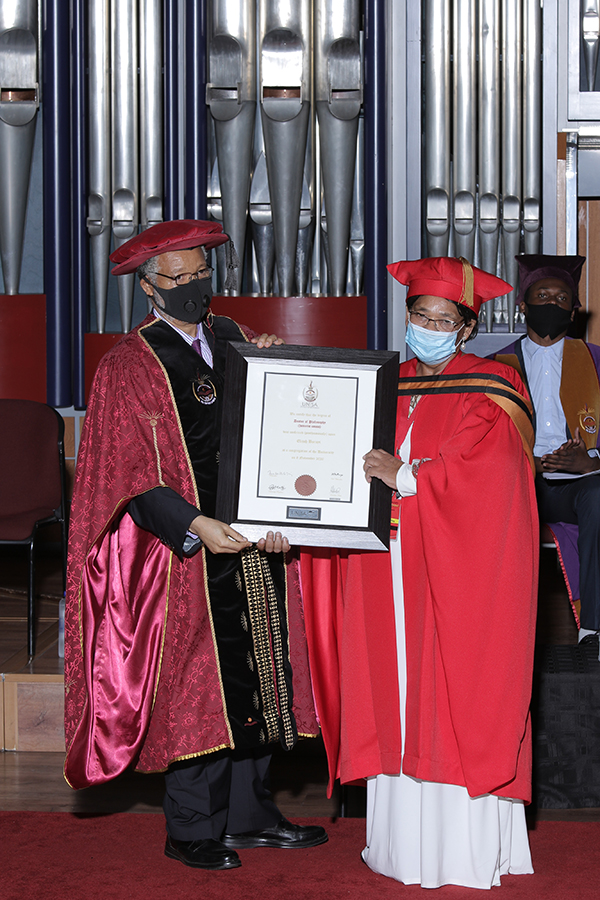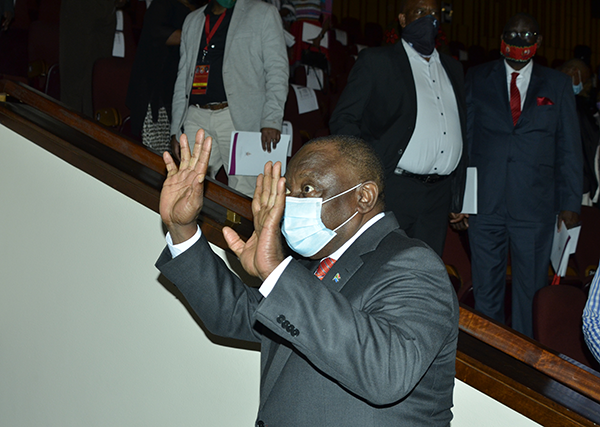News & Events
He fought for the rights of marginalised miners
Unisa recently conferred the Degree of Doctor of Philosophy (honoris causa) posthumously on Elijah Barayi. It was accepted on behalf of the Barayi family by his daughter, Zukiswa Mlhwatika.

Prof Mandla Makhanya (Principal and VC, Unisa) congratulates Zukiswa Mlhwatika on the posthumous degree of Doctor of Philosophy (honoris causa), which she accepted on behalf of her late father.
Elijah Barayi was born on 15 June 1930 in Cradock, Eastern Cape, South Africa. He joined the ANC youth league as a teenager and distinguished himself as an able speaker and efficient organiser. During the early 1950s, Barayi was arrested for his participation in the defiance campaign.
Upon his release, Barayi worked briefly for the Department of Native Affairs but resigned on conscientious grounds as he felt it was at the forefront of administering apartheid. As an alternative pathway, he held a variety of jobs until 1960 when he left the Eastern Cape to take up employment as a clerk at State Mines, Brakpan. He was an Organising Secretary for the ANC and was detained during the 1960 state of emergency and held for six months.
With the honorary degree, Unisa recognises that the late Barayi spent his living years fighting for the rights of poor, exploited, and marginalised working-class miners. He rose from humble beginnings to become a leader of society and the President of the Congress of South African Trade Unions (COSATU).
Accepting the degree on behalf of the Barayi family, Mlhwatika explained how the degree would be her father’s dream come true. “He loved and valued education so much and the change that it brings to people and the society. I know he would have been so happy and I believe he is rejoicing where he is,” Barayi’s daughter spoke of her late father.
Barayi fought tirelessly against the apartheid government and its inhumane laws. As a champion for social and economic justice, he was the unwavering embodiment of Unisa’s vision of being the African university shaping futures in the service of humanity.

The ceremony attracted a number of dignitaries, including SA President Cyril Ramaphosa, himself a Unisa alumnus, various ambassadors, and trade union leaders, among others.
The ceremony attracted a number of dignitaries, including SA President Cyril Ramaphosa, himself a Unisa alumnus, various ambassadors, and trade union leaders, among others.
Unisa is proud to honour the memory of Elijah Barayi.
*By Tshimangadzo Mphaphuli, Senior Journalist, Department of Institutional Advancement
Publish date: 2020/11/12
